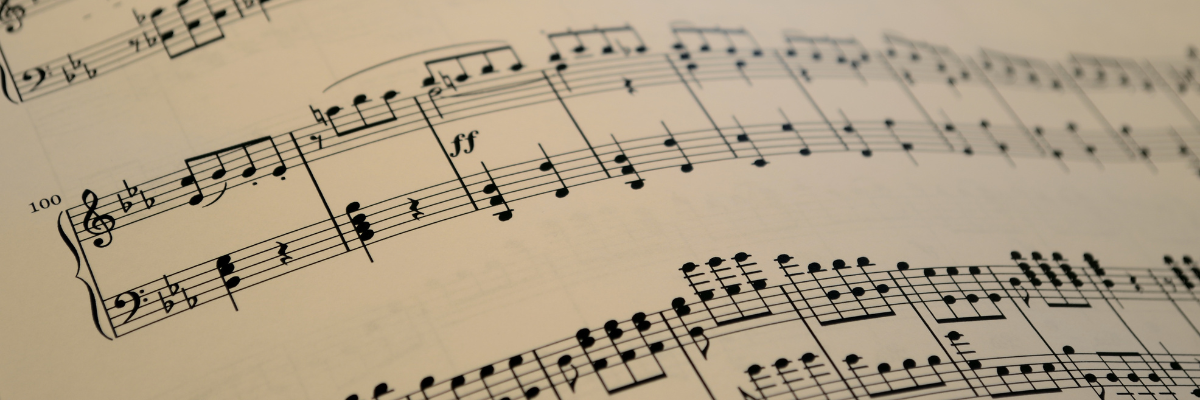Music Therapy in Dementia Treatment
Music has tremendous power. It connects people from different generations, improves our mood and is a kind of time machine that takes us back to our best and worst memories within seconds. However, these are not the only benefits of music. Some time ago, scientists discovered another advantage of listening to music — a salutary effect in the treatment of dementia! And that is the subject of today’s article! What is music therapy? How do you use music for dementia treatment? Which dementia music is best?
What is music therapy?
The tradition of using music in therapy dates back to tribal times, when a shaman would use singing, playing instruments and dancing during healing rituals. Nowadays, it is a scientifically based field in which the music therapist has to assimilate knowledge from many scientific disciplines in the training process, including psychology, medicine, pedagogy and psychotherapy. Music therapy is a discipline that employs music or elements of music to restore health or improve the functioning of people with a variety of emotional, physical or mental problems. This method is used to treat, for example, depressive disorders, neurotic conditions, personality trauma and senile dementia.
What types of music therapy are there?
With regard to the techniques used in music therapy today, a distinction is generally made between active music therapy, which includes physically engaging interventions such as singing, playing instruments, movement to music, or improvisation and receptive music therapy, which is based on listening to music, relaxation and visualisation. At the same time, there is a distinction based on methods and approaches in this distinction we also deal with two groups.
The first is music used as an element of each session – important, but not always fundamental, it often forms the background or complements the applied psychotherapeutic techniques. The second group is the ‘music-as-therapy’ approach – proceedings where it is recognised that the very contact with music, playing or creating it, has a significant therapeutic value.
Music therapy for dementia
As reported in the Journal of Alzheimer Disease, based on the results of a study by some of the top researchers at the University of Toronto, regular listening to music that has personal meaning for the patient has a positive effect on brain plasticity in people with early-stage Alzheimer’s disease or mild cognitive impairment. Music therapy can play a positive role in maintaining preserved function and slowing the progression of symptoms of the disease, as well as shaping the relationship between the patient and their immediate environment. It enables a specific type of interaction, such as singing, dancing and playing instruments together, creates a safe atmosphere and appeals to undisturbed brain function. This is why music for dementia can be an invaluable part of senior therapy.
What effect does music for dementia have on patients?
Can music for dementia cure an elderly person? Recovery can be a very long-term process, but music therapy for dementia can halt the progression of the illness, reduce the perception of bothersome symptoms and improve the senior citizen’s quality of life. The aims of music therapy interventions for elderly people suffering from dementia can be divided into several groups, related to disturbed areas of functioning, such as cognitive sphere, arousal and emotions, and social functioning. Dementia and music therapy go hand in hand. Dementia music results in the following benefits for older people:
- increase in activity,
- relaxation,
- sedation,
- calming,
- improved emotional expression,
- reduction of anxiety,
- stimulating memory functions,
- exercising concentration of attention,
- stimulating memories, reminiscences,
- improving orientation,
- stimulating verbal communication,
- stimulating non-verbal communication.
What music for dementia treatment?
Wondering which music for dementia patient to choose? Unfortunately, we will not present you with a complete playlist of music for dementia. There are no specific genres, performers or songs that work better for senile dementia. Why? Because it’s not at all about the music itself, but the music familiar to the senior concerned. The more well-liked the performer or song, the better. And ideally, the music for dementia patients has a unique personal meaning, such as reminding them of their first love, a child born, a wedding or other special event in their life.
By musically referring to events in the patients’ personal lives that have been associated with the chosen songs or genres, memory is stimulated, memories resurface and the brain is stimulated to work better. Singing or playing instruments together can help to maintain relationships with loved ones and stimulate contact and interaction. For this reason, it is a good idea to conduct music therapy sessions in the presence of not only the patient but also their carers. Spending time with and caring for the patient can lead to frustration, depression and apathy.
Music for dementia – summary
Dementia and music should go hand in hand, as the latter can tremendously improve the quality of life of a person affected by this condition. So be sure to encourage your senior with dementia to listen, play and sing their favourite songs. Those who have previously played instruments will gain the most, as in addition to improved brain function they will improve their motor skills, but even passive listening can significantly slow down the progression of the disease. In addition to this, music therapy for dementia patients also has a positive effect on their mood and is a method of preventing depression. Therefore, it is definitely worth introducing music for dementia treatment!














